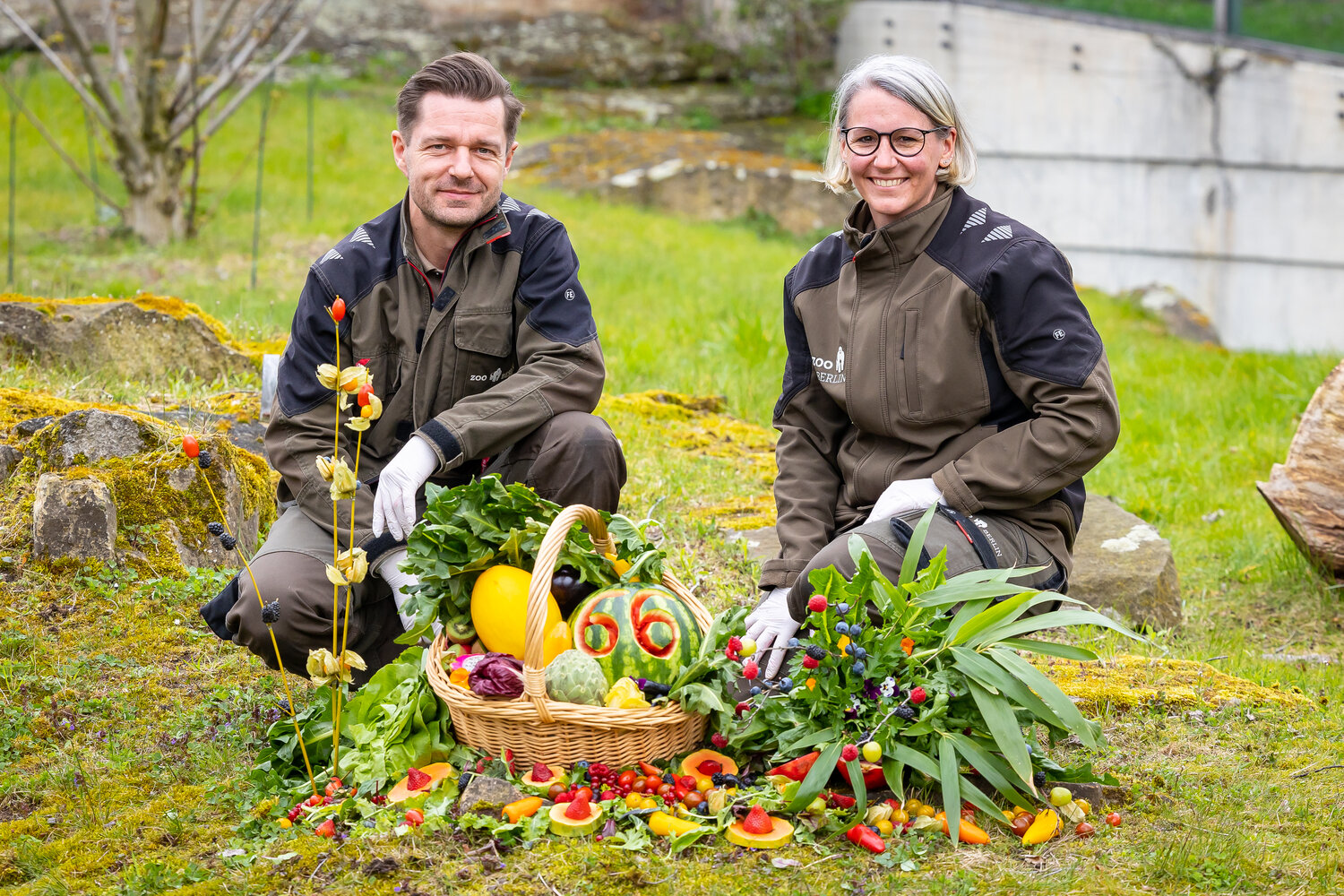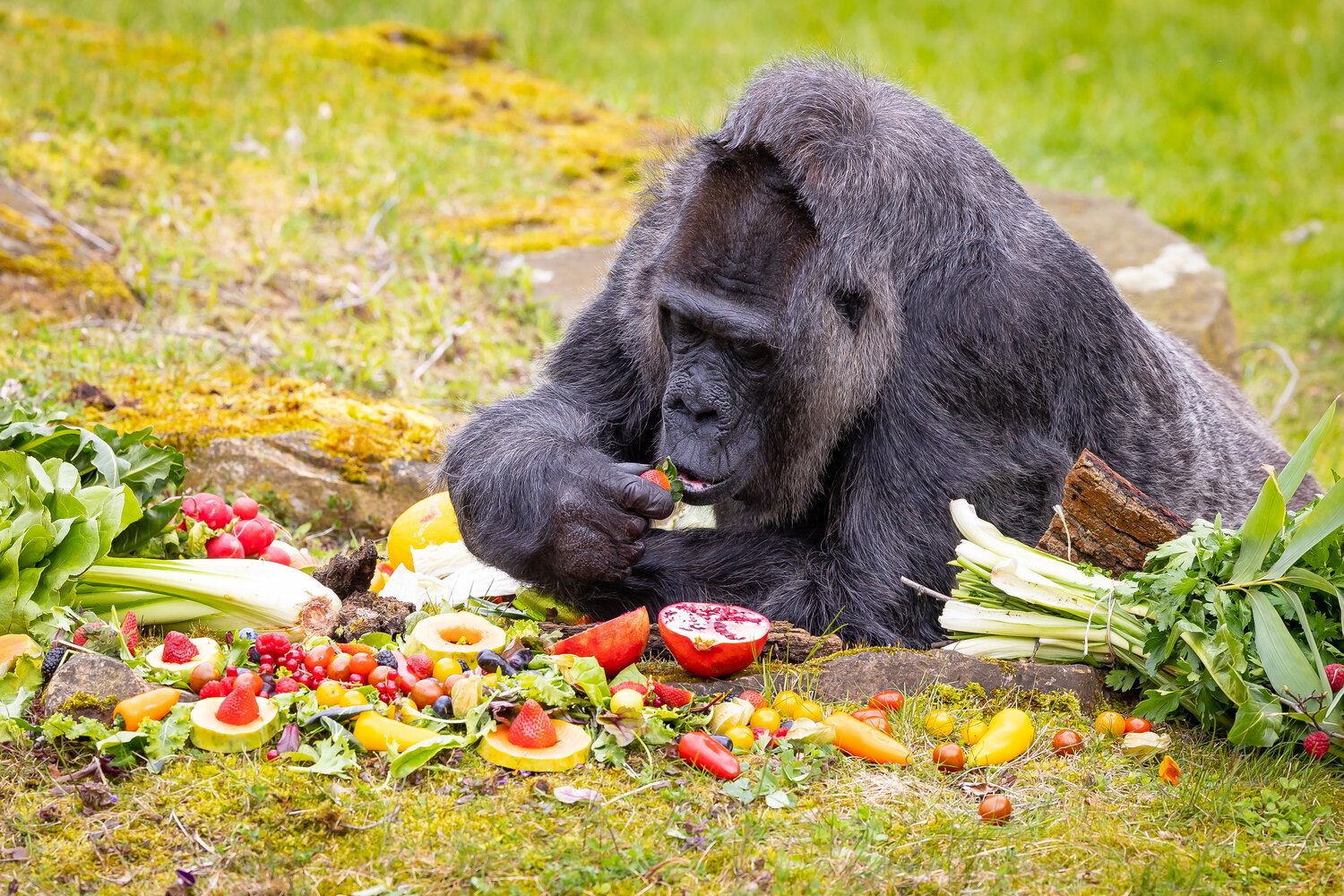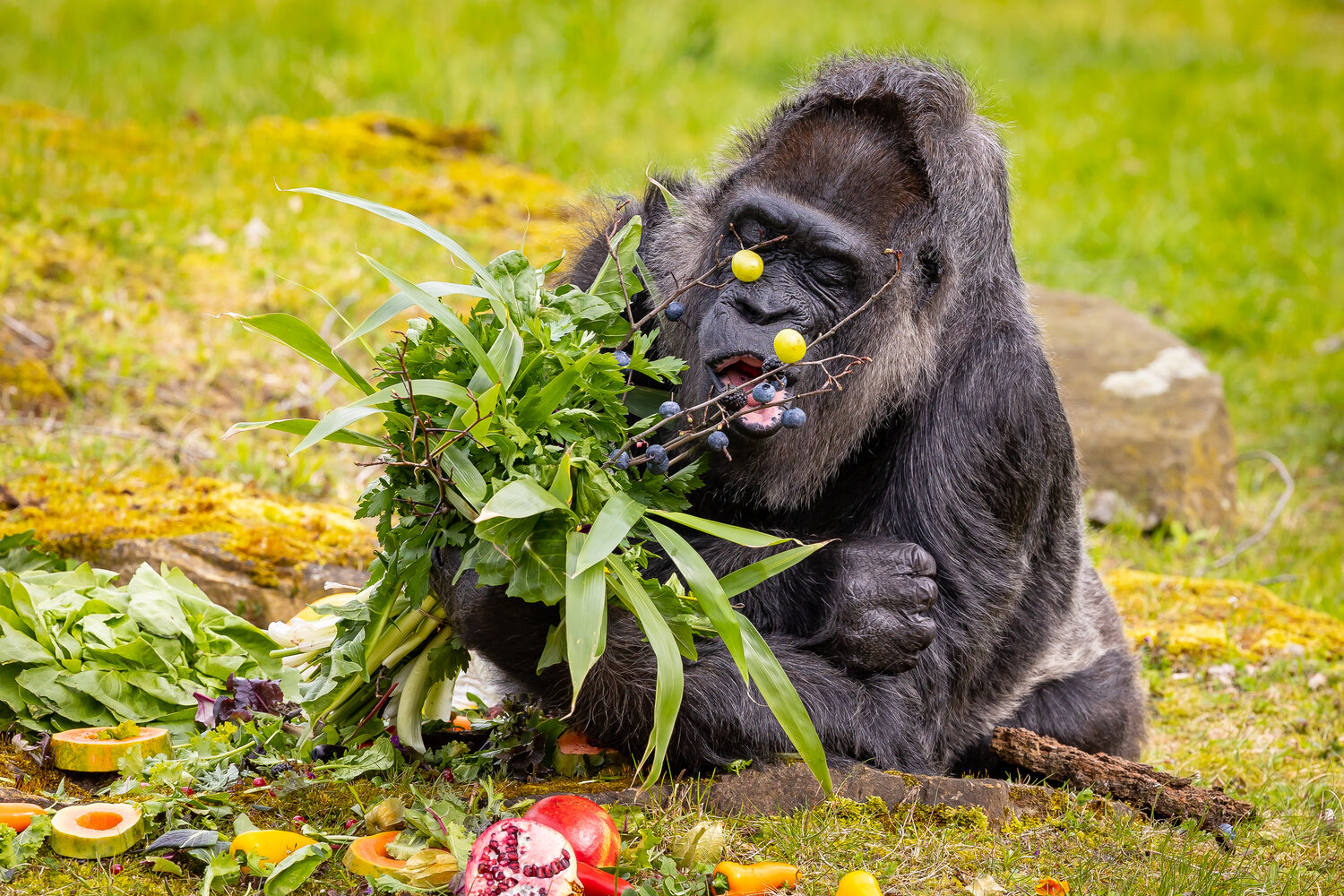Today marks a special day for a living legend: female gorilla Fatou is now 66 years old. This record-breaking achievement was celebrated with a special feast that had been lovingly prepared by Zoo Berlin staff before the birthday girl awoke. Fatou tucked in gleefully to her birthday treats, which featured bright red, yellow and green fruits and vegetables – including a watermelon with two sixes carved into it. The colourful banquet was also a feast for the eyes of the numerous well-wishers who stopped by to visit Fatou. As well as the birthday meal, the keepers presented the elderly lady with a delicious bouquet of leaves and juicy twigs, decorated with berries and edible flowers.
Gorillas should only enjoy fruit on rare, special occasions as, just like humans, they need to limit their sugar intake. Since fruit contains a lot of sugar in the form of fructose, usually the gorillas dine only on vegetables. The Zoo Berlin team were therefore very careful when it came to choosing the birthday delicacies. “We always make sure Fatou gets healthy meals that are appropriate for her needs,” says deputy division head Ruben Gralki. “Given her advanced age and lack of teeth, Fatou requires very soft foods that she can easily chew.” At 66, Fatou is the oldest gorilla on record. She lives apart from the Zoo’s other gorillas, as the antics of the group – which includes one very active toddler (Tilla) and one full-grown silverback (Sango) – would be too much for the frail old lady. “Fatou is free to contact her neighbours at any time if she would like to, but instead she purposefully seeks solitude and stays away from the other gorillas,” says Gralki. Fatou’s carers keep a watchful eye on her wellbeing and ensure that she has plenty of activities to keep her occupied in her daily life, such as seeking out food around her habitat and climbing on ropes.




